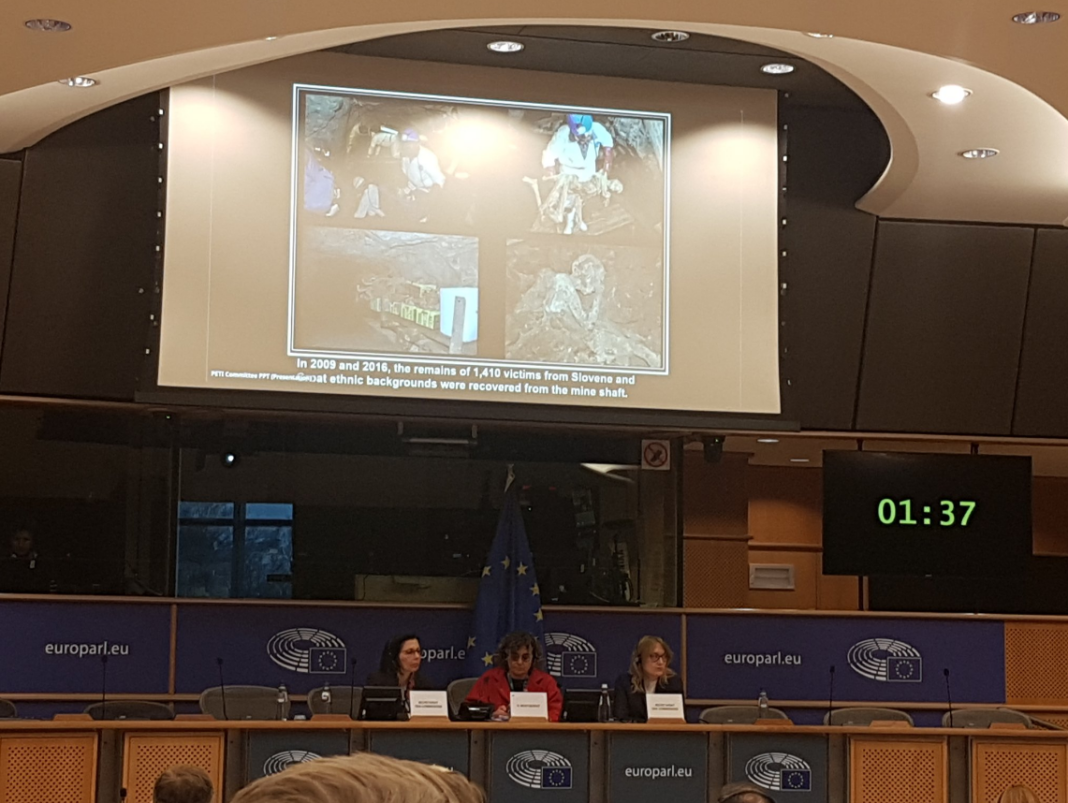By: Gašper Blažič
The Committee on Petitions of the European Parliament, as announced, discussed the Slovenian petition for the right to a grave and memory regarding the victims of communist massacres in the post-World War II period.
The agenda started with almost an hour of delay due to a heated debate on the previous item, which related to the report on Catalonia or the status of the Spanish language in public educational institutions there. It is worth noting that the Committee on Petitions is led by Spanish MEP Dolors Montserrat. MEPs of the European Parliament Margrete Auken from Denmark, from the Green group, and Maria Danzi from Italy, from the Five Star Movement. It seems that the report on the status of official languages in Catalonia has divided MEPs.
Unlike the previous item, there was virtually no discussion
When the consideration of this item finally began, both Dr Mitja Ferenc and MEP Romana Tomc presented the issue. There was practically no debate on the petition. A representative of the European Commission responded that the Commission, as the central executive body, has already taken numerous steps to preserve the memory of victims of totalitarian regimes. However, the recording of memory is mostly left to individual member states. Nevertheless, the European Court of Human Rights can intervene if representatives of the victims complain that they are not being considered by the executive authority. There was practically no discussion, and only one comment, which was a result of a misunderstanding, was made by the aforementioned MEP Margrete Augen, stating that she disagrees with treating victims of totalitarian regimes differently and that victims of fascism are forgotten.
There is no good communism!
From the remaining MEPs, Bulgarian MEP Andrej Kovatchev was very direct, stating that there is no good communism. Meanwhile, Romana Tomc expressed that the abolition of the Day of Remembrance for the Victims of Communism is an act of the weak. The petition seems to have not gone unnoticed – not only because the committee chair, Dolors Montserrat, assessed that the petition had a very, very high priority, but also due to the proposal by MEP Peter Jahr that the European Parliament send a letter to the Slovenian Prime Minister Robert Golob expressing disappointment over the abolition of the memorial day. This is also because May 17th, as a memorial day, does not only refer to the victims of 1945 but also to the Roma killed in 1942, still in the first half of World War II and even before the appearance of the first village guards, the first armed anti-revolutionary group.
Perhaps we could conclude this day, which is also Ash Wednesday, with a thought from the first station of the cross written by Primož Krečič, the rector of the Koper Cathedral. Among other things, he wrote, “Condemnation makes us lighter because we shift our powerlessness and lack of freedom onto others. Ideologists and dictators always find ‘legal’ ways to condemn and silence opponents and those who think differently. Otherness challenges because it requires effort, openness, a shift, clarification, so different people must be eliminated, they must no longer exist.”

